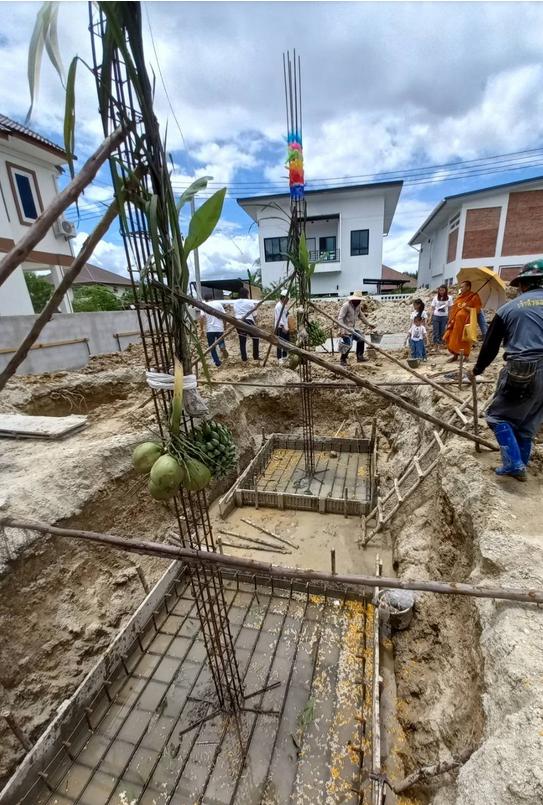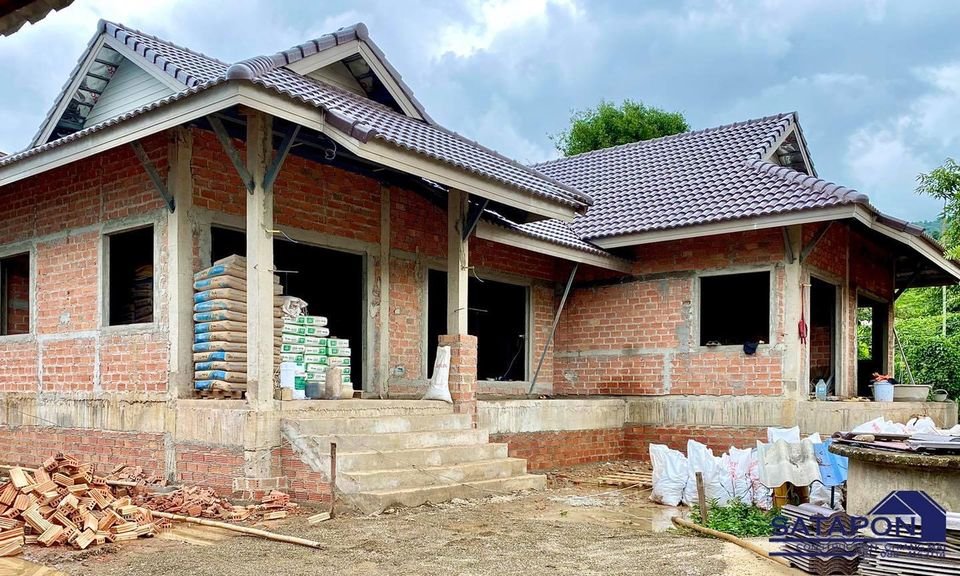
unheard
Advanced Member-
Posts
1,244 -
Joined
-
Last visited
Content Type
Events
Forums
Downloads
Quizzes
Gallery
Blogs
Everything posted by unheard
-
Disagree. There is a huge (yes huge!) difference in quality of houses in those price ranges. The 20 mil mansion most likely than not will be built by a premium market specialist company utilizing quality materials and very high quality of labor, as compared to the 1 mil house built by part-time workers (farmers).
-
That's all very good advice but given from one certain perspective when one decides to become his own general contractor. That requires lots of research and/or prior industry knowledge, certain people skills (language, local customs), time and patience. Not for everyone, to say the least. The alternative would be hiring a full service home building company that handle all related to home building processes - from A to Z. Each company is different. Some (most?) specialize in a certain price tier.
-
Should it be? I haven't looked into the resale values of older Toyota hybrids as compared to the purely ICE cars. Don't the batteries in them experience significant degradation, especially in the cars that are more than 8 years old?
-
Any GWM Haval H6 or Jolion owners out there ?
unheard replied to Andrew Dwyer's topic in Thailand Motor Discussion
Thank you for the link. ???? The subject matter discussed in the video is very much relevant to the OP's question. -
@Ade1969 You haven't mentioned if you're prepared to pay for real good insulating values. The ACC block is the best material. But it will cost you more compared to red brick (material and labor). If you choose ACC then you'll have to make sure that your builder is familiar and qualified to work with that material, or it will get you in trouble later on. Cavity walls do work wonders but also cost more compared to the single layer walls. From best to worse as related to insulating values: ACC cavity wall - 7.5cm blocks. ACC wall - 15 or 20cm blocks Brick cavity wall Brick standard wall Don't use foil insulation on walls. As carlya has mentioned in the post above, you'd also need to insulate the roof/ceiling structure. IMHO, the best and relatively cost efficient option is the PU insulated Bluescope metal roof. The 25mm thick PU foam is a proven and efficient insulating material. Properly done ridge vented roofs are also great, but virtually unknown around here. You might also want to insulate the ceilings with fiberglass batts. But even if you've chosen to pay for the best insulated roof and walls, your house will still be hot on the inside if you go with the Thai standard single pane aluminum windows. Thai PVC windows would be better, but not by much. Especially if many of them are facing the afternoon Sun. Only the western standard, double pane, Argon gas filled, solar glass PVC windows would provide sufficient insulation as compared to other measures mentioned above. That all costs money, especially the western standard windows. You'll will need to find the best combination of measures to fit your particular budget. Or you might want to save on all that expense, get a minimum of insulation on the roof/ceiling, opt for the cheapest walls and windows, shade the house with trees from the direct Sunlight and just run A/Cs.
-
I was wondering the same thing. Who, where and when prints and attaches those labels. And yes, not a bad idea to spend a few minutes to verify the label numbers against the database at the egat's website: http://labelno5.egat.co.th/new58/?taxonomy=language&term=en
-
Ready to give up on my Nissan Juke
unheard replied to DumbFalang's topic in Thailand Motor Discussion
He'll have to force them to replace that transmission. They will not do that if he just asks. -
Sounds very promising.
-
Is it the new 2023-2024 redesigned model? https://www.youtube.com/watch?v=LeNuVUK7QcM
-
You're correct!
-
@matchar You're reading the labels correctly. The problem is with the labels - somehow they've managed to print the second one with an incorrect star rating. At the egat's own site both models carry the same efficiency rating - 5★★ The energy consumption numbers are also messed up as printed on the labels.
-
Does city water require a dedicated large metal filter tank?
unheard replied to elena edwards's topic in DIY Forum
@elena edwards Get a new plastic tank and a pump. Also make a habit of periodically (depending on water quality) draining sediments accumulated at the bottom of the tank. You can also purchase a Reverse Osmosis filtration system installed under the kitchen counter. It will remove more than 99% of impurities, including all bacteria. -
It means everything. But you're right on the point that I should have used a better choice of wording. Of course there are exceptions. But overall?
-
@Chris1975 You need to run a lab water test. This particular test includes: pH, Turbidity, Color, Total Hardness, Chloride, Total Iron, Manganese, Nitrate, Sulfate, Total Dissolved Solids, Arsenic, Cadmium, Copper, Lead, Mercury, Selenium, Zinc, Cyanide, Fluoride, Non Carbonate Hardness, Standard Plate Count, Coliform Bacteria, E. coli https://www.testtech.co.th/th
-
He's in Chiang Rai - pile driving is probably out of question. And yeah, he does need to talk to a local builder, the very least.
-
-
There's no rebar being used between the bricks - structurally it's not needed in the non load-bearing wall. Metal rods being used as joint reinforcements in the areas where walls join columns or other walls . With one side of the rod embedded into the brick while the other side drilled into the concrete column or other wall.
-
Thai red brick is durable, cheap material that is being used just about everywhere in Thailand by default. Yes by itself It doesn't offer great insulating values but can be made thermally and acoustically efficient via simple double wall designs that are still fairly affordable. Clay structures in Thailand? I haven't seen many, if any. I think there must be a reason for that. Sounds like a maintenance nightmare. As constructed in Thailand, do they offer any seismic resistance? Their resistance to earth shaking would be pretty much near zero if not constructed within strict guidelines, e.g. 30 cm minimum wall thickness, with ceilings of no more than 8 times of the wall thickness, specific shape of the building, specifically built corners, roof structure and how it connects to the walls and many, many other things that must be considered, designed and even more importantly built by a specialist, which would certainly add a great deal to the overall costs. btw, many areas of Thailand are seismically active.
-
Depends on... design of the house, region of the country, proximity to the sizeable city, cost and availability of housing for the building crew, proximity to the sources of construction materials, road access availability, site preparation requirements etc, etc, etc... In addition, an unpermitted house in the countryside constructed by the part-time builders (farmers) will be significantly cheaper as compared to the exact same design constructed from the similar materials on the same lot if done by a bigger city based legit builder.
-
You might still be able to fit your budget (you haven't specified) by making the pool smaller. You might be able to save significantly by the ways of adjusting pool's dimensions (by reducing its length and/or width) but still keeping it very functional for your particular use. The equipment choice might also play some role in keeping the prices down. The pump and salt chlorinator are the most expensive parts on the equipment list. e.g. the American Hayward pump is at least 2X or even more as expensive as the very similar Chinese one. The same story is with the chlorinator. There are many things to consider. If you're really set on getting a pool, I'd advise you to spend some time on learning about swimming pools and their equipment before making the commitment. Also would be real helpful to learn about pool maintenance in general. Don't just go with the pool builder's advise. He's not exactly unbiased.
-
Not unreasonable for that size. But not cheap either. Try other builders.
-
Depending on the area, there are still many non-reach Thai families living in old, all teak houses, which are being passed from generation to generation.
-
The standard way is to make a concrete foundation (with lots of rebar). Could be elevated or not, usually set on concrete footings or sometimes piles. The walls are of the non load-bearing type. Over here they use load-bearing concrete frames consisting of concrete footings and floors attached to concrete columns. The bricks are placed in between the columns to form non load-bearing walls. The metal roof beams complete the structural frame at the top.
-
That's why I've mentioned he might reimburse them, just not at the market prices. And yes, amazingly generous relatives do exist. It all depends on his personal situation.
-
"Miles from anywhere" usually means you can build whatever you want and how you want - no permits necessary. But still advisable "just in case".









